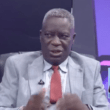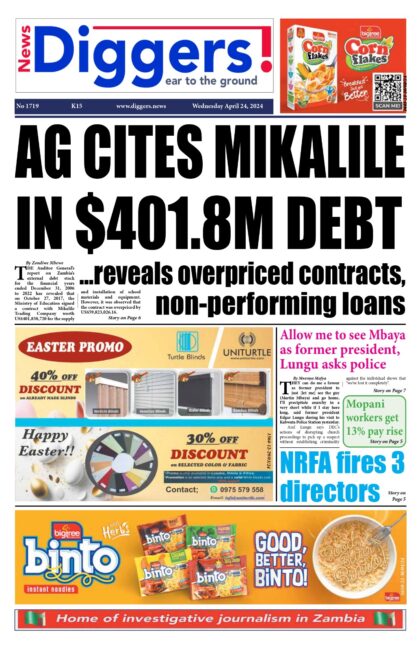NATIONAL Democratic Congress President Chishimba Kambwili says Zesco is being unreasonable by continuing with the 10 to 12 hours of load shedding because the power utility has had ample time to find solutions.
On Friday during a Media briefing Zesco director for strategy and corporate affairs Patrick Mwila said the power utility company would continue with the 10 to 12 hours of load shedding despite consistent rainfall because power generation was still constrained due to lower water levels at Kariba Dam.
He revealed that water levels at Kariba was at 12 percent full compared to 42.99 percent at the same time last year and that the ideal capacity that was required was 69 percent.
“Load management for up to 10 to 12 hours will continue being implemented with caution as we observe what is happening in the major reservoirs; we have seen that the water levels are still very low. [In the] 2019- 2020 rainy season, we did experience delayed rainfall as you may have seen, most of us didn’t have anything in November; December we had a few rains so that delay means that because we catch water coming from very distant parts of the country to get into the reservoirs, it means that when the water started coming in January, then we are waiting still for some of the water to arrive to really determine where we stand. Also, we started this particular rainy season with extremely very low levels; the reason being is that we had a deficit the previous year and we had to work with that deficit,” said Mwila.
But in an interview Kambwili said the Zesco management needed to be changed because they didn’t seem to have any solutions.
“It is unreasonable for Zesco to say that load shedding will continue for 10 hours! Zesco has had a lot of time from 2015 when we first faced severe drought and according to the meteorological department they made very clear to say this drought will be with us for a long time to come but when the water normalised in the Kariba Dam they went to sleep. I was there in government when that thing happened and we planned how we were going to diversify the generation of electricity. Among others, we said let us create coal powered generation; let us invest in solar; let us invest in wind mill and if possible, let us invest in nuclear but everybody went to sleep until last year 2019 that is when they started talking about those projects. Those projects were to come on board by June 2019 meaning we should have been generating extra electricity even to export to neighboring countries in the region,” Kambwili said.
“So it is unreasonable for Zesco! We don’t want this load shedding! Load shedding should come to an end. How they do it it is not our problem otherwise this Zesco must just be dissolved and create another utility company or the entire management at Zesco must just be fired because this is an acceptable!”
He said load shedding would have effects on the country’s economy and reduce investor confidence in the country.
“Having said that, from last year to date, it is close to 18 months since we started experiencing load shedding. In 18 months, you can construct a solar farm which could have supplemented the hydro generation; but people are just irresponsible in this country and they don’t know the effect on the economy that this load shedding is causing. Companies are not producing to the maximum; some of the companies have even laid off their workers even investors do not come in a country where there is no power,” said Kambwili.
“We need direct foreign investment in order for people to create jobs and also to grow the economy. Investors cannot come where they hear you have electricity for two hours in a day, how are they going to produce? This has collapsed the economy, this has caused misery among small business men such as those who run salons; those who run barbershops; those who run butcheries among others.”













2 Responses
Wise Kambili ! But join Pf
If we won’t stp tempering with forests and river banks water levels will never rise.